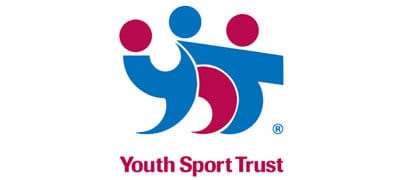
Having attended the Youth Sports Trust (YST) School Sport Conference 2011 in Telford, I’ve walked away with my annual booster shot of inspiration.
The conference theme of “Competition Inspiring Everyone” showcased some of the latest developments in school sport, including the new School Games initiative. The messages delivered during the conference held emphasis on inclusion, leadership, high quality physical education (HQPE) and competition. As we now move fully into this new phase of government direction, the new School Games initiative is starting to grow in momentum, direction and purpose.
The School Games initiative uses the inspiration of London’s Olympics and Paralympics to help transform competitive sport in schools and get more people playing sport. It will include a whole range of competitive sporting opportunities for young people, from class versus class and school versus school competitions and county wide festivals, through to a national event in the Olympic Park next May.
A number of athletes turned out at the School Sports Conference to pledge their support for the new school sports movement. Olympic triple jump gold medallist Jonathan Edwards, Olympic heptathlon gold medallist Denise Lewis and Paralympic gold medallist swimmer Chris Holmes, who is now director of Paralympic Integration at LOCOG, were among the stars.
The five focus points of the Youth Sports Trust that were reiterated during the conference included:
1. Improving the PE experience for every young person
Focussing on helping schools to reach out to every young person by redesigning PE and school sport to engage those not currently engaged, as well as driving improvements in providing a meaningful PE experience for young people with disabilities.
2. Using PE and sport to inspire learning and achievement
Supporting the 501 Sports Colleges and Academies in England to use their specialism to inspire learning and achievement across the whole school. By placing Sports Colleges at the centre of the school sport infrastructure, many schools are using PE and sport to raise standards in English, Maths and Science as well as improve behaviour, attendance and aspirations.
3. Enabling every young person to enjoy competition and providing support to the most talented
Working with National Governing Bodies of Sport and schools to widen the opportunity for young people to compete within, and between, schools. Also helping to put intra-competition back at the heart of all schools.
4. Coaching and Volunteering
Working to create the next generation of volunteers as coaches, officials and team managers. It is a vital piece of our work to ensure that young people taking part in sport are fully supported by well trained, inspiring and passionate sports coaches. Our Young Ambassadors programme encourages young people to take on leadership roles while promoting the importance of healthy and active lifestyles, and encouraging participation in school sport and PE. It focuses on the importance of the Olympic and Paralympic Values, which are imperative in everyday life.
5. Connecting school and club sport
Working with schools and National Governing Bodies of Sport to establish new clubs on schools sites. This is not only addressing accessibility issues for young people (e.g. cost, location and culture), but it’s also helping to ‘open up’ schools to their local community and providing access to potentially underused facilities.
One message that was clear during the conference was that sustainability is more important now than ever. We must ensure that the Olympics legacy is felt long after the athletes have arrived and departed from London 2012, and with the looming possibility of School Sports funding further decreasing, the time to act is now. We must implement support structures and sustainable workforces to ensure that the quality and provision of School Sport continues to go from strength to strength, undeterred by reduction in funding or government life cycles, remembering that young people are at the heart of everything we do.


Responses